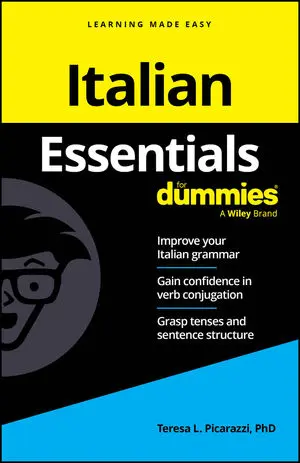Certain Italian verbs, usually those with Latin roots, are accented differently from the norm. Instead of the stress falling on the usual next-to-lastsyllable, the stress falls on the third-to-last syllable, exceptin the noi and voi forms in the present tense..
This accento sdrucciolo matters in Italian because poetic meter depends on syllabic count, a count in part determined by which syllable of the last word in a line of poetry is stressed. More important for your purposes, when movies are dubbed into Italian, silly characters (from The Three Stooges, for example) never get this accentuation right. In order to sound Italian, you need to be aware of words that have accentuation or vocal stress patterns that differ from the norm.
That is, the singular present-tense conjugations, and the third-person plural conjugation of each verb “back up” their stress by one syllable. The noi and voi forms maintain the normal next-to-last syllable stress. Consider the stress shown in the following conjugation of abitare.
abitare: to live
| io ábito | noi abitiámo |
| tu ábiti | voi abitáte |
| lui/lei/Lei ábitaloro ábitano |
The following common verbs all use the accento sdrucciolo in the present tense conjugation.
capitare: to happen
celebrare: to celebrate
dedicare: to dedicate
desiderare: to want
dominare: to dominate
esercitare: to exercise
immaginare: to imagine
indicare: to indicate
mormorare: to murmur
necessitare: to need (used impersonally)
occupare: to occupy
ordinare: to order
partecipare (a): to participate (in)
predominare: to predominate
pubblicare: to publish
significare: to mean
soffiare: to blow
superare: to supercede
telefonare: to telephone (someone)
terminare: to finish, to end






